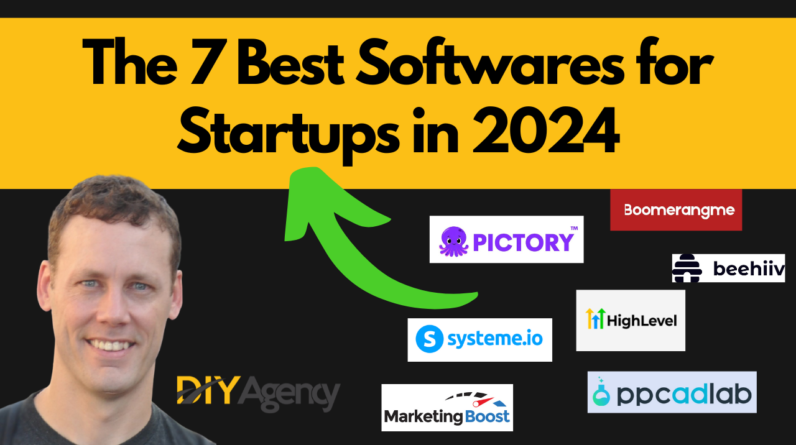
If you’ve ever wondered whether it’s possible to succeed in affiliate marketing without a substantial social media following, look no further. This article explores the possibilities and potential strategies for achieving success in affiliate marketing, even if you don’t have a massive following on platforms like Facebook, Instagram, or Twitter. To address the question on everyone’s mind – yes, it is indeed possible to thrive in affiliate marketing without a large social media following. So, if you’re ready to learn how to make waves in the world of affiliate marketing, keep reading!
The Importance of Social Media in Affiliate Marketing
In today’s digital age, social media has become an essential tool for businesses and marketers alike. It offers a multitude of benefits, especially when it comes to affiliate marketing. Here, we will explore the various reasons why social media is crucial in affiliate marketing and how it can help you build a successful online business.
Building a Network
One of the key advantages of social media in affiliate marketing is its ability to help you build a network. Platforms like Facebook, Instagram, and Twitter provide the perfect opportunity to connect with like-minded individuals, potential customers, and fellow marketers. By actively engaging in conversations, sharing valuable content, and interacting with others in your niche, you can establish relationships and expand your network.
Building a strong network is vital for affiliate marketing success. It allows you to collaborate with others, exchange ideas, and potentially gain access to exclusive partnerships and opportunities. Through social media, you can connect with industry experts, influencers, and bloggers who can help you grow your business and reach new audiences.
Brand Visibility
Another critical aspect of social media in affiliate marketing is brand visibility. With billions of people actively using social media platforms, these networks offer unprecedented exposure for your brand and the products or services you promote. By consistently sharing engaging content, valuable insights, and promotional offers, you can increase your brand’s visibility and reach a wider audience.
Social media also allows you to personalize and humanize your brand. By showcasing your unique personality, sharing behind-the-scenes glimpses, and interacting with your followers, you can establish a strong brand identity and build trust with your audience. This, in turn, can lead to higher conversion rates and increased affiliate sales.
Driving Traffic
One of the primary goals of affiliate marketing is to drive high-quality traffic to your website or landing page. Social media platforms offer an excellent opportunity to achieve this goal. By sharing compelling content and utilizing persuasive calls-to-action, you can entice your followers to click on your affiliate links and visit your website.
Through social media, you can leverage the power of viral sharing. If your content resonates with your audience, they are likely to share it with their own networks, resulting in an exponential increase in visibility and potential traffic. Additionally, many social media platforms offer advertising options that allow you to target specific demographics and increase the reach of your affiliate marketing campaigns.
Building Trust and Credibility
Trust and credibility are essential elements in affiliate marketing. Social media plays a crucial role in establishing and nurturing these qualities. By consistently providing high-quality content, offering valuable insights, and engaging with your audience, you can build trust and credibility within your niche.
Social media allows you to showcase your expertise and position yourself as a knowledgeable authority. By sharing informative blog posts, hosting live Q&A sessions, and providing personalized advice, you can demonstrate your expertise and gain the trust of your followers. This trust translates into higher conversion rates, as people are more likely to purchase products or services based on recommendations from someone they trust.
Alternative Strategies for Affiliate Marketing
While social media is undoubtedly a powerful tool for affiliate marketing, it is not the only avenue for success. There are alternative strategies that you can explore to diversify your approach and maximize your affiliate marketing efforts.
Blogging and Content Marketing
Blogging remains one of the most effective methods for affiliate marketing. By consistently creating valuable and informative content related to your niche, you can attract organic traffic and build a loyal audience. Incorporating affiliate links within your blog posts allows you to monetize your content and earn commissions.
Content marketing goes hand in hand with blogging. By creating various forms of content, such as videos, podcasts, and infographics, you can engage with your audience on multiple platforms. This increases your visibility and allows you to reach people who prefer different mediums of content consumption.
Search Engine Optimization (SEO)
Search engine optimization, or SEO, is the process of optimizing your website and content to rank higher in search engine results. By targeting relevant keywords, optimizing your website’s structure, and obtaining quality backlinks, you can improve your website’s visibility and attract organic traffic. Incorporating affiliate links strategically within your optimized content can help drive conversions.
Email Marketing
Email marketing remains one of the most powerful tools for affiliate marketers. By growing a targeted email list and crafting engaging and valuable email campaigns, you can nurture relationships with your subscribers and promote affiliate products effectively. Personalization, segmentation, and automation are essential techniques to maximize the effectiveness of your email marketing efforts.
Influencer Marketing and Collaborations
Collaborating with influencers and other relevant content creators can greatly amplify your affiliate marketing efforts. By identifying influencers within your niche, researching their audience and engagement, and building genuine relationships, you can tap into their network and gain access to a highly targeted audience. Collaborating on content, affiliate campaigns, or product launches can increase your brand exposure and attract new customers.
Niche Websites and Online Forums
Creating niche-specific websites and participating in online forums are effective ways to reach a highly targeted audience. Niche websites allow you to focus on specific products or services that resonate with a particular segment of the market. By consistently creating high-quality content and incorporating well-placed affiliate links, you can attract visitors who are more likely to convert.
Online forums provide a platform for engaging with a community of like-minded individuals who are passionate about your niche. By providing value, answering questions, and showcasing your expertise, you can establish yourself as a trusted authority and attract potential customers.
Leveraging Existing Platforms and Communities
In addition to the alternative strategies mentioned above, leveraging existing platforms and communities can further enhance your affiliate marketing efforts. By tapping into established networks, you can reach a wider audience and connect with people who are already interested in your niche.
Utilizing Online Marketplaces and Affiliate Networks
Online marketplaces and affiliate networks provide a centralized platform for connecting affiliate marketers with product owners. By joining these platforms, you can gain access to a vast array of products and services to promote. These platforms often provide tools and resources to help you track your affiliate links, analyze performance, and manage commissions.
Joining Niche-specific Forums and Communities
Joining niche-specific forums and communities allows you to engage with a highly targeted audience. By actively participating in discussions, providing valuable insights, and offering assistance, you can build relationships and establish your expertise. These communities often have dedicated sections for affiliate marketing, where you can share your affiliate links and attract potential customers.
Guest Blogging and Contributing as an Expert
Guest blogging and contributing articles as an expert allow you to tap into existing audiences and gain exposure. By reaching out to popular blogs or publications within your niche and offering to provide valuable content, you can showcase your knowledge and expertise to a wider audience. Strategic placement of affiliate links within your guest posts can drive traffic and generate sales.
Participating in Online Discussions and Q&A Platforms
Engaging in online discussions and Q&A platforms, such as Reddit or Quora, enables you to interact with a diverse range of people seeking information or advice related to your niche. By providing helpful, well-thought-out responses, you can establish yourself as an authority and attract potential customers. Including relevant affiliate links in your responses can drive traffic to your website or landing page.
Creating Valuable and Engaging Content
Content lies at the core of any successful affiliate marketing strategy. To attract and retain your target audience, it is essential to create valuable and engaging content that addresses their needs and interests. Here are some key factors to consider when creating content for affiliate marketing:
Identifying Target Audience and their Needs
Understanding your target audience is crucial in creating content that resonates with them. Conduct thorough research to identify their demographics, interests, pain points, and desires. This knowledge will guide you in crafting content that addresses their specific needs and provides solutions.
Developing High-Quality Content
The quality of your content plays a significant role in capturing and retaining your audience’s attention. Aim for well-researched, insightful, and well-written content that provides value. Utilize credible sources, provide accurate information, and offer unique perspectives or actionable advice.
Utilizing Visual Media and Infographics
Visual media, such as images, videos, and infographics, can enhance the effectiveness of your content. Humans are naturally drawn to visual elements, and incorporating them into your content can make it more appealing and engaging. Infographics, in particular, are an excellent way to present complex information in a visually appealing and easy-to-digest format.
Leveraging User-Generated Content and Reviews
User-generated content, such as testimonials, reviews, and case studies, can significantly influence purchasing decisions. Encourage your audience to share their experiences with the products or services you are promoting. Incorporate these testimonials and reviews within your content to build trust and credibility.
Incorporating Call-to-Actions and Opt-ins
To maximize your chances of converting visitors into customers, it is crucial to incorporate clear and compelling call-to-actions (CTAs) within your content. Include well-placed affiliate links, buttons, or banners that prompt your audience to take the desired action, such as making a purchase or subscribing to a newsletter. Additionally, offering opt-in incentives, such as free ebooks or exclusive discounts, can encourage visitors to provide their email addresses, allowing you to nurture them through email marketing.
Maximizing SEO for Visibility and Traffic
Search engine optimization (SEO) is a key element in driving organic traffic to your website or landing page. By optimizing your content and website structure, you can improve your visibility in search engine results and attract targeted visitors who are actively searching for the products or services you promote. Here are some essential strategies for maximizing SEO in affiliate marketing:
Conducting Keyword Research
Keyword research is the foundation of effective SEO. Identify relevant keywords that align with your niche and have a decent search volume. Tools like Google Keyword Planner or SEMrush can assist you in finding popular keywords and analyzing their competitiveness.
Optimizing Website and Content Structure
Optimizing your website and content structure helps search engines understand and index your content more efficiently. Ensure that your website is user-friendly, well-structured, and responsive across different devices. Arrange your content in a logical manner, use heading tags appropriately, and optimize your meta tags, URLs, and image alt tags with relevant keywords.
Generating Backlinks and External Referrals
Backlinks, or external links from other reputable websites, are crucial for SEO. They act as a vote of confidence for your website’s authority and relevance. Create compelling content that other websites would want to link to and actively reach out to other bloggers or website owners in your niche to build relationships and generate backlinks.
Regularly Publishing Fresh and Relevant Content
Consistently publishing fresh and relevant content is vital for SEO success. Search engines favor websites that are regularly updated with new content. Develop a content calendar and aim to publish high-quality content on a consistent basis. This signals to search engines that your website is active and relevant.
Growing an Email List and Utilizing Email Marketing
Email marketing remains one of the most effective methods for nurturing relationships with your audience and promoting affiliate products. Building an email list allows you to directly communicate with your subscribers and share valuable content and promotional offers. Here’s how you can grow your email list and leverage email marketing for affiliate marketing success:
Creating Lead Magnets and Opt-in Incentives
Lead magnets, such as free ebooks, checklists, or courses, are valuable resources you offer in exchange for your visitors’ email addresses. By creating compelling lead magnets that align with your niche and target audience’s interests, you can entice them to opt into your email list. Ensure that your lead magnets provide genuine value and solve a specific problem your audience may have.
Designing Captivating Email Capture Forms
Your email capture forms should be strategically placed throughout your website or landing page to maximize conversions. Design visually appealing and attention-grabbing forms that clearly communicate the benefits of subscribing. Keep the form fields simple and only request information that is necessary for your email marketing strategy.
Implementing Personalization and Segmentation
Personalization and segmentation are essential techniques for delivering targeted and relevant content to your subscribers. Collect relevant information about your subscribers, such as their interests or previous purchases, and utilize this data to send personalized emails. Segment your email list based on demographics, behavior, or preferences to ensure that your subscribers receive content that is most relevant to them.
Crafting Engaging and Valuable Email Campaigns
Your email campaigns should provide value to your subscribers while also promoting your affiliate products. Strike a balance between educational content, personal stories, and promotional offers. Write compelling subject lines and craft engaging email copy that encourages your subscribers to take action. Monitor and analyze the performance of your email campaigns to refine your strategy and improve conversion rates.
Monitoring Metrics and Analyzing Performance
Effective email marketing requires constant monitoring and analysis of key metrics. Track metrics such as open rates, click-through rates, conversion rates, and unsubscribe rates to evaluate the effectiveness of your campaigns. Utilize email marketing analytics tools to gain insights into your subscribers’ behavior and preferences, allowing you to refine your email marketing strategy and optimize your campaigns.
Collaborating with Influencers and Establishing Partnerships
Collaborating with influencers and other relevant content creators can significantly boost your affiliate marketing efforts. By tapping into their network and leveraging their influence, you can reach a wider audience and attract potential customers. Here’s how you can effectively collaborate with influencers and establish partnerships:
Identifying Relevant Influencers and Bloggers
Identify influencers and bloggers within your niche who have a substantial following and engage with their audience actively. Look for influencers who align with your brand values and have a target audience that overlaps with your own. Tools like BuzzSumo or NinjaOutreach can help you discover relevant influencers and bloggers.
Researching their Audience and Engagement
Researching an influencer’s audience and engagement is crucial to ensure that they have an active and engaged following. Analyze metrics such as likes, comments, shares, and follower growth to assess an influencer’s level of influence and audience interaction. Look for influencers who have a genuine connection with their audience and consistently produce high-quality content.
Approaching and Building Relationships
When approaching influencers and bloggers, take the time to craft personalized and genuine messages. Introduce yourself, explain why you admire their work, and express your interest in collaborating. Offer value and suggest how a collaboration could be mutually beneficial. Building authentic relationships with influencers is vital in establishing trust and increasing the likelihood of a successful partnership.
Negotiating Affiliate Agreements and Commissions
When collaborating with influencers, it is essential to establish clear expectations and guidelines. Discuss the terms of your affiliate agreement, including commission rates, promotional methods, and content requirements. Ensure that both parties are in agreement and have a mutual understanding of the terms before commencing any promotional activities.
Building Niche Websites and Utilizing Online Forums
Building niche websites and participating in online forums are effective strategies for reaching a highly targeted audience. By focusing on specific niches and engaging with relevant communities, you can establish yourself as an authority and attract potential customers. Here’s how you can effectively utilize niche websites and online forums in your affiliate marketing strategy:
Identifying Profitable and Untapped Niches
Research and identify profitable and untapped niches that align with your interests and expertise. Look for niches that have a substantial audience but are not oversaturated with competitors. Explore sub-niches within broader categories to narrow down your focus and target a specific segment of the market.
Creating High-Quality Websites and Content
Once you have identified your niche, create a high-quality website that provides valuable content to your target audience. Invest in professional web design, ensure your website is user-friendly, and make your content easy to navigate. Continually create well-researched, informative, and engaging content that addresses your audience’s needs and includes strategically placed affiliate links.
Engaging and Participating in Relevant Forums
Participate in relevant online forums and communities where your target audience frequently engages. Provide helpful and insightful responses, answer questions, and offer solutions. Avoid overtly promoting your products or services – instead, aim to establish yourself as a trusted expert and resource within the community.
Providing Value and Expertise to the Community
To gain the trust and respect of your audience in niche websites and online forums, consistently provide value and showcase your expertise. Share valuable insights, offer actionable advice, and contribute to discussions. Engage with other community members, build relationships, and encourage dialogue. By being an active and valuable member of the community, you can attract potential customers and increase your affiliate sales.
Measuring and Optimizing Affiliate Marketing Performance
Measuring and optimizing your affiliate marketing performance is essential to ensure that your efforts yield the desired results. By analyzing key metrics and making data-driven decisions, you can continually refine your strategies and maximize your affiliate marketing success. Here’s how you can effectively measure and optimize your performance:
Tracking Affiliate Links and Conversions
Use tracking tools, such as affiliate tracking platforms or Google Analytics, to monitor your affiliate links and track conversions. These tools provide valuable insights into the effectiveness of your promotional efforts, allowing you to identify which campaigns or channels are generating the most conversions. Tracking your affiliate links also enables you to optimize your strategies and make data-driven decisions.
Utilizing Analytics and Reporting Tools
Analytics and reporting tools, like Google Analytics or affiliate network dashboards, provide in-depth insights into your website’s performance and affiliate marketing activities. Monitor key metrics such as traffic sources, conversion rates, revenue generated, and user behavior. Utilize these insights to identify trends, optimize your website and campaigns, and make data-driven decisions.
A/B Testing and Conversion Rate Optimization
A/B testing involves comparing two variations of a webpage, email, or advertisement to determine which performs better in terms of conversions. By conducting A/B tests on your landing pages, email campaigns, or ad creatives, you can pinpoint elements that may be hindering conversions and optimize accordingly. Focus on testing one element at a time, such as the headline, call-to-action, or color scheme, to accurately assess its impact.
Monitoring and Adjusting Marketing Strategies
Continually monitor the performance of your marketing strategies and campaigns. Track key metrics, analyze the data, and identify areas that may be underperforming or need improvement. Adjust your strategies accordingly, experiment with new techniques, and iterate on what is working. This iterative approach allows you to optimize your marketing efforts over time and maximize your results.
Evaluating ROI and Scaling Successful Campaigns
Evaluating the return on investment (ROI) of your affiliate marketing campaigns is crucial for determining their effectiveness. Calculate the costs incurred, including paid advertisements, content creation, and affiliate program fees, and compare them to the revenue generated. Identify campaigns that have a high ROI and a positive impact on your overall profitability. Scale these successful campaigns by reinvesting in them or expanding your promotional efforts to reach a wider audience.
Conclusion
While it is possible to do affiliate marketing without a large social media following, leveraging social media platforms offers numerous benefits that can significantly enhance your success. Building a strong network, increasing brand visibility, driving traffic, and building trust and credibility are all advantages of incorporating social media into your affiliate marketing strategy.
However, it is essential to diversify your approach and explore alternative strategies for increased reach and profitability. Blogging and content marketing, search engine optimization (SEO), email marketing, influencer marketing, and niche websites and online forums are valuable strategies that can complement your social media efforts.
By leveraging existing platforms and communities, creating valuable and engaging content, maximizing SEO for visibility and traffic, growing an email list, collaborating with influencers, and measuring and optimizing your performance, you can build a successful affiliate marketing business. Remember to continually evaluate and refine your strategies based on data-driven insights and focus on providing genuine value to your audience.







